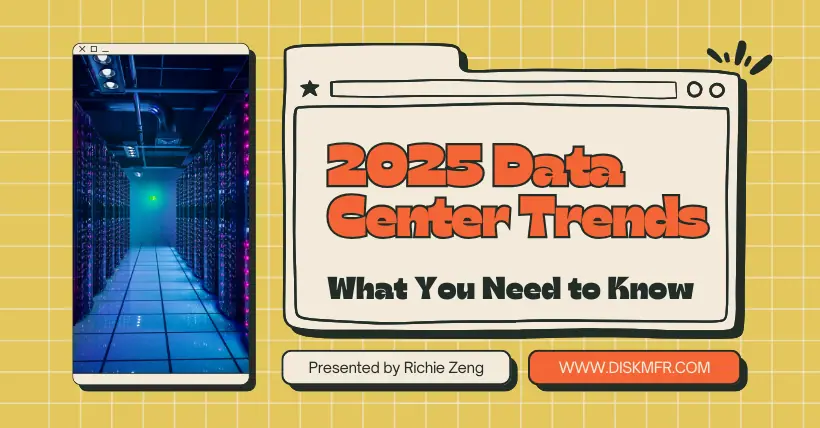Data centers/cloud computing can be considered the core of the artificial intelligence field, accounting for 85% to 90% of Nvidia’s total revenue. Not only are large-scale cloud service providers heavily investing in this area, but countries around the world are also including data center infrastructure in their key infrastructure plans for the coming years. This growth wave, driven by the “post-ChatGPT” era, is creating trillions of dollars in additional value and has become a key topic in current geopolitical discussions. However, a crucial issue remains: when will the enormous investments in these technologies yield real returns? This report highlights the five major trends that TechInsights believes will shape the data center semiconductor industry in 2025 and beyond. At the same time, it outlines the key areas we are focusing on this year.
Trend 1: Capital Expenditure in 2025 Data Centers Will Continue to Grow
Top large-scale cloud service providers will invest approximately $320 billion in AI by 2025. Among them, Amazon will invest $97 billion, mainly for its cloud computing business; Microsoft $85 billion, and Google $75 billion. Meta will also invest $65 billion. Despite some skepticism, investments from tech giants remain strong.
Trend 2: The Cost of Large Language Model (LLM) Inference Will Decrease
After the heated discussion triggered by DeepSeek R1, the focus of artificial intelligence has shifted from training to inference. DeepSeek suggests that iterative research may optimize models, allowing training with fewer computational resources. This means that much of AI’s focus will shift to inference, and as more models are built using similar technologies, the competition will no longer be about who can build the best model, but rather how to reduce the cost of each query as much as possible.
Trend 3: China Will Face Challenges in the Short Term
China has recently stockpiled a large number of advanced AI chips, which may be enough to support its AI development in the coming years, allowing it to build and test new AI models until it establishes its own AI ecosystem. However, China’s economic slowdown and demographic challenges may hinder this prospect. China’s AI startup DeepSeek recently released new models that outperform those of tech giants in both cost and performance. Huawei’s custom AI solutions are now also being used by companies like ByteDance to train their models. These developments could disrupt the global pricing landscape by offering high-performance, lower-cost alternatives.
Trend 4: Legacy Servers Will Be Upgraded on a Large Scale
The majority of global data center infrastructure is over six years old, with high energy consumption and low efficiency. With the development of AI, companies are focused on integrating and upgrading to modernized systems to reduce energy consumption and make space for AI. OEMs such as Dell, Hewlett Packard Enterprise, and Lenovo are seeing revenue growth as a result, and it is expected that a large number of general-purpose computing servers and storage devices worldwide will undergo a new round of upgrades, bringing much-needed revenue growth to their product portfolios.
Trend 5: Collaborative Design of Hardware and Software to Optimize AI Workloads
In 2025, the collaborative design of hardware and software will be critical to the increasingly large and complex AI models. Companies will adopt a more integrated approach, simultaneously developing machine learning frameworks, model architectures, and custom chips to optimize both training and inference costs, while maintaining or improving model performance. DeepSeek R1, by optimizing the mixture of experts (MoE) model, demonstrates that the collaborative optimization of hardware and software can significantly improve AI scalability and cost-effectiveness. More AI systems optimized for specific use cases will emerge in the future.

Disclaimer:
- This channel does not make any representations or warranties regarding the availability, accuracy, timeliness, effectiveness, or completeness of any information posted. It hereby disclaims any liability or consequences arising from the use of the information.
- This channel is non-commercial and non-profit. The re-posted content does not signify endorsement of its views or responsibility for its authenticity. It does not intend to constitute any other guidance. This channel is not liable for any inaccuracies or errors in the re-posted or published information, directly or indirectly.
- Some data, materials, text, images, etc., used in this channel are sourced from the internet, and all reposts are duly credited to their sources. If you discover any work that infringes on your intellectual property rights or personal legal interests, please contact us, and we will promptly modify or remove it.








